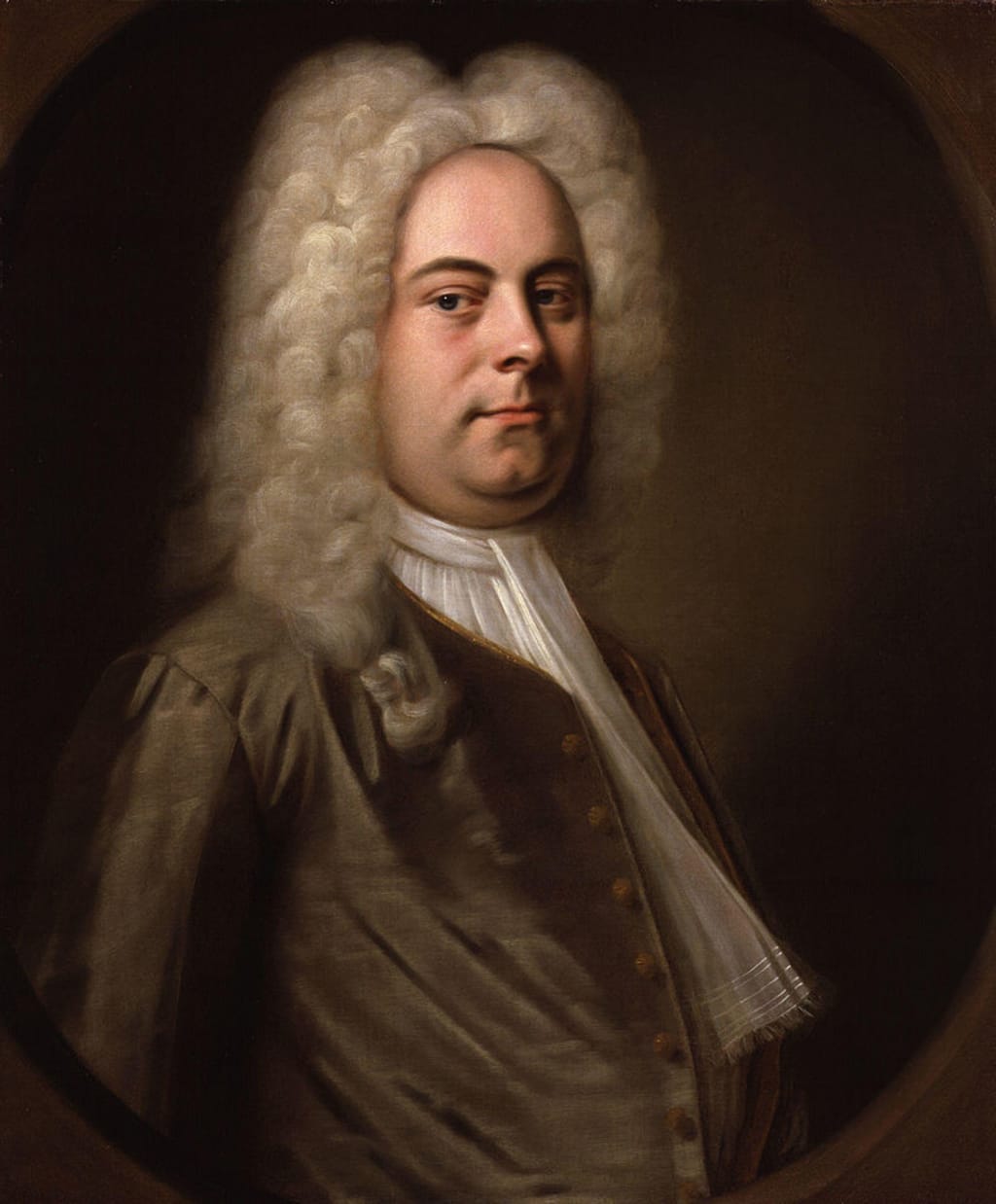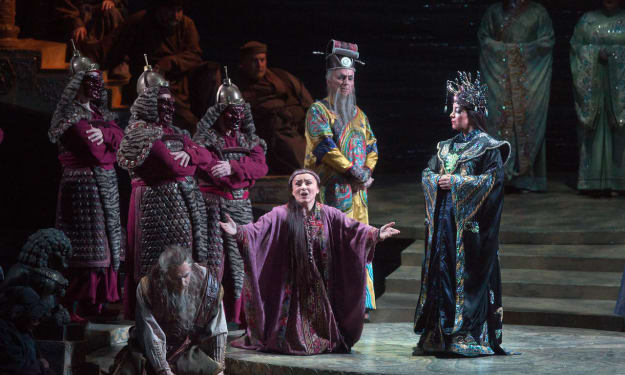The Legacy of George Frideric Handel
A giant of Baroque music

George Frideric Handel (1685-1759) was not a one-hit wonder. However, one of his hits is of such towering importance, and represents such a huge proportion of his legacy, that it deserves far more attention than anything else. But before considering The Messiah, let’s have a look at what else he has left us.
Handel was one of the three baroque greats who lived virtually parallel lives in the late 17th and early 18th centuries, the other two being Bach and Vivaldi. Handel had already achieved considerable fame as a composer of operas and sacred works before he left the court of the Elector of Hanover to settle in England in 1712. When the Elector became King George I in 1714, Handel was able to resume his duties as master of the king’s music.
One product of these duties was the Water Music suite, a set of dance movements composed for a royal function on the River Thames in 1717. Handel and his 50 musicians sailed with the king from Whitehall to Chelsea and back, playing as they went. The king liked the music so much that he asked for the whole lot to be played three times. The event lasted well into the night, and it was nearly dawn before the exhausted players were allowed ashore.
Coupled with the Water Music, in considering Handel’s legacy, will always be the Music for the Royal Fireworks, although the latter suite was a much later offering, dating from 1749 when the king was George II and the event celebrated was the ending of the War of the Austrian Succession. Our legacy is obviously the music itself, but the first performance was a far more dramatic event than anything likely to occur today, with the temporary building in which it was performed catching fire. Indeed, the rehearsal six days previously had seen a near riot as 12,000 people rushed to the venue and three deaths were reported.
Handel’s vast output of operas and oratorios, mostly on Biblical and classical subjects, is now largely forgotten, although we still hear a number of arias and other excerpts that have justly survived to the present day. For example, the aria “Ombre mai fu” has long outlived the opera Serse, and “The Arrival of the Queen of Sheba” is a welcome survival from the oratorio Samson.
Handel composed four coronation anthems for King George II, but it is fortunate that we do not have to wait for a new monarch to come along before we hear “Zadok the Priest”, as it is regularly performed and recorded.
The Messiah
However, it is for The Messiah that Handel is most revered, and rightly so. Composed in only a few weeks (there are disputes over exactly how many), it is the product of a genius who was overflowing with brilliant ideas as to how to get the most out of limited resources. Handel was at heart a showman, and he knew exactly how make an impression on an audience. For him, there was not a lot of difference between an opera and an oratorio in terms of musical effect, and it is a fact that he reused many good tunes and musical ideas – if an opera flopped but had a particularly good aria or chorus, this was likely to re-appear somewhere else, and that is one reason why The Messiah could be composed so quickly, and why it still comes across as being so fresh more than 250 years later.
The Messiah was an immediate success, as evidenced by the famous instance of King George standing in admiration during the “Hallelujah Chorus”, at which the rest of the audience felt honour bound to follow suit. It is always possible that George was merely suffering from cramp, but the custom of the audience standing up at this point has persisted to the present day.
I would suggest that Handel’s true legacy with The Messiah has much to do with factors other than the brilliance of the music. It is the only major piece of church music that is more often performed today by amateur choirs than professional ones. Baroque music was designed for smaller ensembles to perform than that of later periods, and it is quite possible for a choir of 30, plus soloists and a small group of musicians, to produce a very satisfying performance.
The music is spectacular and challenging, but it is not impossible! The choral pieces are all scored within the vocal ranges of most singers, the “twiddly bits” are soon mastered with a bit of practice, and the thrill of belting out “For Unto Us a Child is Born” and “All We Like Sheep”, (and not going astray during “… have gone astray …”!) is an experience worth having.
Indeed, it has become common practice, at least in the UK, for performances of “Messiah from Scratch” to be held. Everyone turns up, at village/town hall or church, has an afternoon in which to rehearse, and then performs in front of an audience in the evening. If you can read music, fine, if not – stand next to someone who can!
That is Handel’s legacy – music that ordinary people want to listen to and perform centuries later, when our world is very different from his.
About the Creator
John Welford
I am a retired librarian, having spent most of my career in academic and industrial libraries.
I write on a number of subjects and also write stories as a member of the "Hinckley Scribblers".






Comments
There are no comments for this story
Be the first to respond and start the conversation.